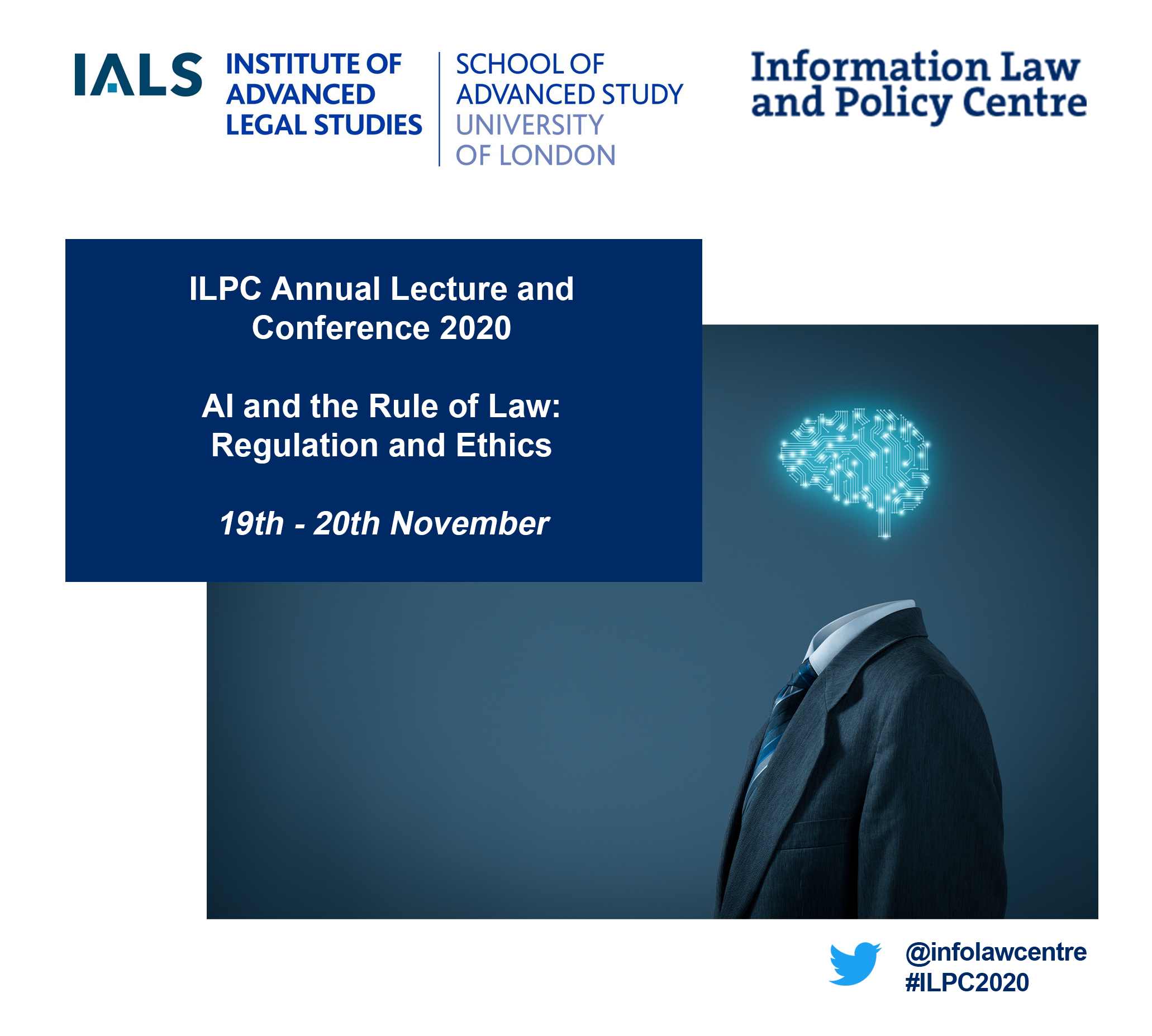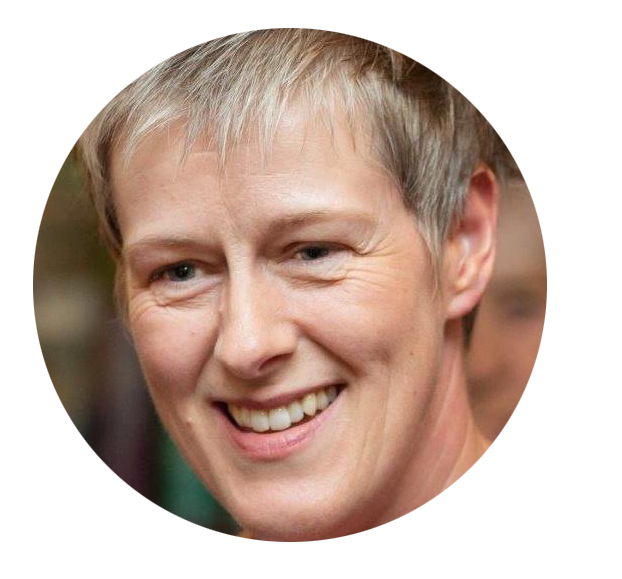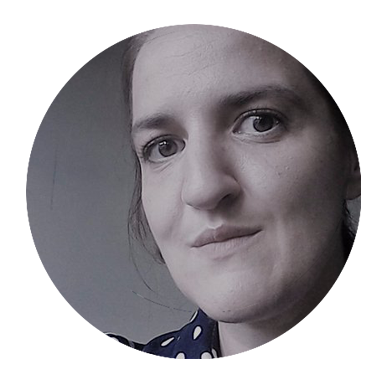
This event is free but advanced booking is required. Details about how to join the virtual event will be circulated via email to registered attendees closer to the event date.
19th November 2020
Welcome and Opening Remarks
10.15am – 10.30am


Dr Nóra Ní Loideain
Director & Lecturer in Law, Information Law & Policy Centre
Institute of Advanced Legal Studies, University of London
Dr Nóra Ní Loideáin is Director and Lecturer in Law of the Information Law and Policy Centre at the Institute of Advanced Legal Studies, University of London. Her research interests and publications focus on governance, human rights, and technology, particularly in the areas of European Human Rights Law and EU law. Her affiliations include: Associate Fellow of the Leverhulme Centre for the Future of Intelligence (LCFI), and Research Associate of the Centre for Intellectual Property and Information Law (CIPIL), at the University of Cambridge; and Senior Research Fellow at the University of Johannesburg. In 2019, Nóra was appointed to the UK Home Office Biometrics and Forensics Ethics Group (BFEG). Nóra is an editor of International Data Privacy Law (Oxford University Press) and a member of the Board of Trustees for the British and Irish Legal Information Institute (BAILII). Prior to her academic career, Nóra was a Legal and Policy Officer for the Office of the Director of Public Prosecutions of Ireland and clerked for the Irish Supreme Court.
Annual Lecture
10.30am – 11am


Lord Clement-Jones CBE
‘AI. Time to Regulate?’
Lord Clement-Jones is a Consultant of DLA Piper where former positions held include London Managing Partner (2011-16), Head of UK Government Affairs, Chairman of its China and Middle East Desks, International Business Relations Partner and Co-Chairman of Global Government Relations. He is Chair of Ombudsman Services Limited, the not for profit, independent ombudsman service that provides dispute resolution for the communications, energy, property and copyright licensing industries. He is a member of the Advisory Board of Airmic (Association of Insurance and Risk Managers in Industry and Commerce) and Board Member of the Corporate Finance Faculty of The Institute of Chartered Accountants in England and Wales (ICAEW) where he also Chairs their AI in Corporate Advisory – Expert Consultative Group. He is a founder member of the OECD Parliamentary Group on AI and a member of the Council of Europe’s Ad-hoc Committee on AI (CAHAI). He is a Senior Fellow of the Atlantic Council’s GeoTech Center which focusses on technology, altruism, geopolitics and competition.
Tim was made a life peer in 1998 and until July 2004 was the Liberal Democrat Health Spokesman and thereafter until 2010 Liberal Democrat Spokesman on Culture, Media and Sport, in the House of Lords. He is a former Spokesman on the Creative Industries (2015-17) and is now the Liberal Democrat Digital Spokesperson in the Lords.
He is former Chair of the House of Lords Select Committee on Artificial Intelligence (2017-18) and a former member of the Select Committees on Communications (2011-15) and the Built Environment (2015-16). He is Co-Chair of the All-Party Parliamentary Group on Artificial Intelligence. He is Deputy Chair of the All-Party Parliamentary Group on China and Vice Chair of the All-Party Parliamentary Groups on Music, The Future of Work, Digital Regulation and Responsibility, Ticket Abuse, Performers Alliance, Writers and Indonesia. From 2012 to 2019 he was the Chair of Lib Dems in Communications.
Tim is Chair of the Council of Queen Mary University of London and Chair of the Advisory Council of the Institute for Ethical AI in Education, led by Sir Anthony Seldon. He is a former Chair of the Council of the School of Pharmacy, University of London (2008-12) before its merger with University College London, whereupon he became an external member of the Council of University College London and Chair of its Audit Committee from 2012-17.
Tim is President of Ambitious About Autism (formerly Treehouse) an autism education charity and school for children with autism and other communication disorders and its former Chairman (2001-08). Tim is a Council Member of the Heart of the City; Fellow of the Public Relations Consultants Association and Honorary Fellow of the Chartered Institute of Public Relations; he is a Governor of Haileybury and an Ambassador for Barts Charity. He is a former Trustee of the Barbican Centre Trust (2012-16) and former Chair of Crime Concern (1991-95). Until its merger with Macmillan Cancer Support in 2008, he was a Trustee of Cancerbackup, the UK cancer information charity founded by his late wife, Dr Vicky Clement-Jones FRCP.
Keynote Panel
Chaired by Dr Nóra Ní Loideain
11.30am – 12.45pm


Dr Joanna Bryson
Professor of Ethics & Technology
Hertie School, Berlin; University of Bath
Joanna Bryson is Professor of Ethics and Technology at the Hertie School. Her research focuses on the impact of technology on human cooperation, and AI/ICT governance. From 2002-19 she was on the Computer Science faculty at the University of Bath. She has also been affiliated with the Department of Psychology at Harvard University, the Department of Anthropology at the University of Oxford, the School of Social Sciences at the University of Mannheim, and the Princeton Center for Information Technology Policy. During her PhD she observed the confusion generated by anthropomorphised AI, leading to her first AI ethics publication “Just Another Artifact” in 1998. In 2010, she co-authored the first national-level AI ethics policy, the UK’s Principles of Robotics. She holds degrees in psychology and artificial intelligence from the University of Chicago (BA), the University of Edinburgh (MSc and MPhil), and Massachusetts Institute of Technology (PhD).


Dr Hamed Haddadi
Professor of Engineering
Imperial College London; Brave Software
Hamed is a Reader in Human-Centred Systems at Imperial College London, and a Visiting Professor at Brave Software. He leads the Systems and Algorithms Laboratory and is an Academic Fellow of the Data Science Institute. He is interested in User-Centered Systems, IoT, Applied Machine Learning, and Data Security & Privacy. He enjoys designing and building systems that enable better use of our digital footprint, while respecting users’ privacy. He is also broadly interested in sensing applications and Human-Data Interaction.


Ellis Parry
Data Ethics Advisor
Information Commissioner’s Office
Ellis Parry was appointed in November 2019 as the Information Commissioner’s first Data Ethics Adviser, responsible for articulating the regulator’s view of the interplay between the inherently ethical principles of the GDPR and the DPA 2018 and the growing field of data ethics. Prior to this Ellis was the Global Lead for Data Privacy at BP, responsible for maintaining its Binding Corporate Rules and designing its GDPR global change programme, and before that Ellis was Global Privacy Counsel at the pharmaceutical company AstraZeneca where negotiating the relationship between medical research ethics and the data protection principles was a regular and constant feature of his practice. Ellis is a solicitor with 19 years’ PQE, an MBA and is a contributing author to Sweet & Maxwell’s “Data Protection Law & Practice” 4th and 5th editions and its standalone guide to the GDPR. His experience encompasses all aspects of information rights law with a particular focus and interest on ethical implications of big data, artificial intelligence and machine learning and their intersection with the data protection laws.
Discussant


Carly Kind
Director
Ada Lovelace Institute
Carly Kind is the Director of the Ada Lovelace Institute, an independent research institute and deliberative body a remit to ensure data and AI work for people and society. A human rights lawyer and leading authority on the intersection of technology policy and human rights, Carly has advised industry, government and non-profit organisations on digital rights, privacy and data protection, and corporate accountability in the technology sphere. She has worked with the European Commission, the Council of Europe, numerous UN bodies and a range of civil society organisations. She was formerly Legal Director of Privacy International, an NGO dedicated to promoting data rights and governance.
Panel 1:
New governance for new technologies?
2pm – 3.30pm


Andrew Clarke
LLM Candidate
University of Kent
‘Reclaiming privacy in the digital era: The impact of GDPR on Surveillance Capitalism’
Andrew Clarke is an Intellectual Property and International Commercial Law LLM candidate at the Kent Law School, University of Kent. He received his LLB in English and Spanish Law at First Class Honours from Kent in 2019 and has a passion for international affairs and the digital economy. His recent publications are titled Is there a commendable regime to combat money laundering in International Business Transactions? (Journal of Money Laundering Control, 2020) and International disputes must still be solved by political means (Kent Student Law Review, Vol.3, 2017). He is currently completing his dissertation on designing data privacy frameworks for demonstrable accountability within the digital economy.


Hannah Lim Jue Yi
Head of Rule of Law & Emerging Markets
Lexis Nexis
‘AI and the Rule of Law in Developing States’
As Head of Rule of Law and Emerging Markets for LexisNexis Southeast Asia, Hannah puts together and manages the organisation’s rule of law initiatives in the region, working in partnership with key stakeholders in both the public and private sectors, and with civil society. These projects leverage LexisNexis’ core capabilities in harnessing technology to develop, manage and distribute legal content and data, and her focus is on helping justice-sector government departments effectively adopt technology to enhance capacity. Between projects, she moonlights by supporting the core LexisNexis business in developing products and market strategies for the region.
Prior to joining LexisNexis, Hannah was a corporate lawyer in Myanmar from 2010 to 2017 with two Singapore law firms, during which she had the privilege of observing the country’s exciting transition up close. She has an undergraduate degree in International Relations, and obtained a Masters in Asia Pacific Policy Studies while reading law, all from the University of British Columbia in Vancouver, Canada. Hannah is called to New York State Bar and the Singapore Bar, and is also a mediator accredited by the Singapore Mediation Centre.


Natalia Menéndez González
PhD Candidate in Law
European University Institute, Florence
‘Democracy or Dystopia: Is the right to privacy ready for Facial Recognition Technology empowered by AI?’
Natalia Menéndez González is a First-year PhD researcher at the Law Department at the European University Institute (Florence) and former researcher at the Constitutional Law Department at the University of Oviedo (Spain). Her PhD thesis focuses on privacy-driven algorithmic accountability for FRT empowered by AI. She is concurrently working on the controversial use of FRT by Facebook and also the privacy impact of FRT usage during the COVID-19 health emergency. She has a trajectory at diverse Law firms in Spain and is a founding member of COYDER (an association devoted to promote the public communication of the Law) and member of the Lucena Bar Association.


Dr Sara Hourani
Senior Lecturer in Law
Middlesex University London
‘Preserving Independence and Impartiality in AI-Based Online Dispute Resolution’
Dr Sara Hourani is an Associate Professor (Senior Lecturer) at the School of Law, Middlesex University London. Sara also currently holds a Visiting Lectureship at the University of Aix-Marseille (France). Sara received an LLB degree from Grenoble II University (France), an LLM in International Trade Law and a PhD in Law from the University of Essex (UK). Sara was granted the prestigious UK Arts and Humanities Research Council (AHRC) PhD scholarship to pursue her doctoral studies and has been the recipient of different grants and awards to carry out her research. Namely, Sara was a John W Kluge Scholar at the Library of Congress in Washington DC which was funded by the AHRC to carry out research in international commercial law. Before joining Middlesex, Sara previously held a Lectureship in Law at the Law Department and CIPPM at Bournemouth University and also taught at the University of Essex and the University of East Anglia.
Sara’s research interests are in the areas of international arbitration and international commercial law. More recently, Sara’s work has been focusing on the use of new technologies in online dispute resolution and arbitration. This work has been presented in various fora such as Yale Law School, the UNCITRAL, the International Chamber of Commerce, the Blockchain Technology Conference 2019, the 2018 and 2019 ODR Forums and the Paris Chamber of International Arbitration (CAIP). Sara is currently co-editing a manuscript on access to justice in arbitration, which includes a section on the impact of new technologies on arbitration, to be published by Wolters Kluwer.


Dr Patrick O’Sullivan
Researcher
Business Information Systems, University College Cork
‘Regulating Fake News during a pandemic’
Dr. Patrick O’Sullivan is a Legal Researcher with the EITIC Research cluster in the Business Information Systems Department University College Cork. The aim of the cluster is to examine how ethics and technology interact with each other and how to regulate this growing sector to protect consumer and societal interests.
Discussant


Graham Smith
Of Counsel
Bird & Bird
Graham Smith is of counsel at Bird & Bird LLP, based in London. He is one of the UK’s leading cyberlaw experts, with a practice encompassing advisory and contentious work in the internet, IT and intellectual property fields. Graham has handled a variety of disputes in the IT sector, ranging from IT project litigation to software copyright disputes.
He has advised all kinds of internet actors on topics including copyright, intermediary liability and cross-border issues. His internet work includes lawful access to communications, data retention and related privacy issues. His submissions and evidence on the Investigatory Powers Bill were quoted in A Question of Trust, in the Joint Parliamentary Committee on the draft Bill, in the Commons Science and Technology Report on the draft Bill, in the Bulk Powers Review and in House of Lords debates on the Bill.
He edits and co-authors the textbook Internet Law and Regulation (Sweet & Maxwell, 5th edition forthcoming). His section of the Encyclopedia of Information Technology Law (Sweet & Maxwell) addresses non-contractual liability in the IT field, including negligence liability of suppliers and consultants. He contributed a chapter ‘Cyberborders and the Right to Travel in Cyberspace’ to the book ‘The Net and the Nation State’ (CUP 2017, ed U. Kohl). Graham was a member of a Law Commission Advisory Panel for its project on Electronic Execution of Documents. His Cyberleagle blog is a respected source of analysis on IT and internet law topics.
He is a member of the Advisory Board of the Information Law & Policy Centre and a member of the Editorial Board of the International Journal of Law and Information Technology. He is rated by Chambers UK Directory as a Senior Statesperson for Information Technology.
Chair


Dimitra Kamarinou
Researcher
Centre of Commercial Law Studies, Queen Mary, University of London
Dimitra Kamarinou is a Researcher in the Cloud Legal Project at the Centre for Commercial Law Studies, Queen Mary University of London (QMUL) and in the Microsoft Cloud Computing Research Centre, which is a collaboration between the Cloud Legal Project and the University of Cambridge Computer Laboratory. Dimitra is also a PhD candidate at QMUL, a visiting lecturer at King’s College London (the Dickson Poon School of Law), and a Greek qualified attorney-at-law. She has 10 years’ experience working in law, including for human rights organizations, such as The Greek Ombudsman and Amnesty International (London), and for commercial and IP strategy firms. She has published articles in cloud computing and data protection law, including on issues of machine learning. She obtained an LLM in Human Rights Law from Birkbeck, University of London (with distinction) and in Corporate & Commercial Law from QMUL (with merit). Her PhD looks at the data protection and human rights issues of using personal data for medical research.
Panel 2:
Algorithmic transparency and State power
3.45pm – 5pm


Petra Molnar
Associate Director and Lawyer; EDRi Mozilla Fellow
Refugee Law Lab, York University, Canada
‘Borders and Pandemics: AI and Migration Management in the Time of COVID-19′
Petra Molnar is a lawyer and researcher specializing in technology, migration, and human rights. She is currently working on a project looking at the impacts of migration control technologies on the lives of people on the move in Greece and the Mediterranean corridor, as well as the impacts of the COVID-19 pandemic on the surveillance of marginalized groups. Petra also works on issues around immigration detention, health and human rights, gender-based violence, and the politics of refugee, immigration, and international law. Her work has appeared in numerous academic publications and the popular press, including the New York Times. Petra is also the co-author of “Bots at the Gate,” an internationally recognized report on the human rights impacts of automated decision-making in immigration and refugee systems.


Katarina Foss-Solbrekk
PhD Candidate in Law
University of Oxford
‘Algorithmic disclosure under EU law’
Katarina Foss-Solbrekk is a doctoral (DPhil) candidate in law at the Law Faculty of Oxford University. She specializes in intellectual property law, data protection law and technology law. Her research focuses on the legal and societal implications of intellectual property rights, covering issues such as improving access to algorithmic information, as well as increasing medicinal access and enhancing drug price transparency. Katarina holds an Advanced LLM in Law and Digital Technologies from Leiden University and an LLM in EU Intellectual Property Law from Stockholm University.


Dr Wenlong Li
Postdoctoral Research Fellow in Law, Ethics and Computers
University of Birmingham
‘Digital Experimentation in the Public Sector: A Critical Interrogation’
Dr Wenlong is a Postdoctoral Research Fellow at the University of Birmingham, where he’s working on the research project ‘Digital Experimentation in the Public Sector’. Wenlong is a research affiliate at Edinburgh Centre for Data, Society (CDCS) and teaches Advertising Law at Edinburgh Law School.


Professor Perry Keller
Dickson Poon School of Law, King’s College London
‘Paternalism in the governance of artificial intelligence and automated decision-making in the United Kingdom’
Perry Keller is Reader in Media and Information Law at the Dickson Poon School of Law, King’s College London, where he specialises in information law, including privacy rights, data protection, freedom of information and freedom of expression. Mr Keller holds degrees from the University of British Columbia and Osgoode Hall Law School, York University in Canada and from Harvard Law School, Harvard University, USA. He also has a long running scholarly interest in law in contemporary China, having both studied and worked in China.
Mr Keller’s current research work concerns FOI and other information access rights in relation to AI systems (EPSRC Trust, identity, privacy and security in the digital economy grants – ‘Trust in Human-Machine Partnerships’) and data protection issues in programmatic advertising (ICO Grants Programme 2020 – ‘After third party cookies – Consumer consent and data autonomy in the globalised Adtech industry’).
Discussant


Dr Rachel Adams
Senior Research Specialist; Associate Research Fellow
Human Sciences Research Council, South Africa; IALS, University of London
Dr Rachel Adams is a Senior Research Specialist at the Human Sciences Research Council of South Africa, and an Associate Research Fellow of the Information Law and Policy Centre at the Institute of Advanced Legal Studies (IALS), University of London. Her research lies at the intersection of philosophy, gender, technology, law and race, and she has published widely in these fields.
Rachel was previously led the work of the South African Human Rights Commission on civil and political rights, including authoring various reports to the United Nations. She completed a post-doctorate at the Institute of Advanced Legal Studies, University of London. Dr Adams is the incoming Chair of the Independent Expert Panel of the South African Department of Science and Innovation’s Centre on Artificial Intelligence Research (CAIR), and is leading various projects around AI, ethics and policy in South Africa, including the development of a policy brief series on AI, Data and Ethics which has been endorsed by the UN Global Pulse. She has further secured funding for her work around AI from the University of Cambridge’s Albadora grant, the UK Arts and Humanities Research Council, and a grant of over $250,000 to support research in Artificial Intelligence, Human Rights and Ethics across the African region from Facebook.
Rachel is further a member of the Independent Advisory Group of the Surveillance Camera Commissioner for the UK Home Office, and an Editor of the South African Journal on Human Rights. She is the author of Transparency: New Trajectories in Law (Routledge, 2020), and the lead author of a forthcoming book with HSRC Press on Human Rights and the Fourth Industrial Revolution in South Africa (2021). Her work on gender and AI has been cited in, amongst others, Nature, The Guardian, the New York Times and by the United Nations.
Chair


Dr Peter Coe
Lecturer in Law; Editor-in-Chief
University of Reading; Communications Law
Peter is a Lecturer in Law at the University of Reading specialising in Media Law and Criminal Law. Prior to this he was a practising barrister specialising in privacy, defamation and reputation management, having been Called to Bar by Lincoln’s Inn in 2007. Peter has also held a Senior Lectureship in Law at Aston University, where he taught Media Law and Criminal Law.
His primary research interests are: (i) citizen journalism’s impact on free speech, media freedom and regulation and the concepts of privacy and reputation; (ii) defamation and the protection of corporate reputation; (iii) media power and plurality, the role the media plays within society and its impact on democracy. His work in these areas has been published in leading journals such as the Journal of European Tort Law, Legal Studies, the University of Melbourne’s Media & Arts Law Review, the Journal of Business Law and Northern Ireland Legal Quarterly, amongst others. It has been referred to by the Scottish Law Commission and has been used by IMPRESS (the Press Recognition Panel-approved regulator) to inform its work on press regulation. Peter writes for practitioner and media outlets, such as the New Law Journal, The Independent, The Conversation and Inforrm, and he is regularly invited to speak to the media, at conferences and to give guest lectures to academics, non-academics and policy makers. His research led to him joining the Information Law and Policy Centre in May 2018 and, in 2020, he was appointed as an Advisor to the University of East London’s newly formed Online Harms and Cyber Crime research unit.
Since August 2019 Peter has been Editor-in-Chief of Communications Law, one of the leading specialist journals devoted to media and technology law. He is also the author of the ‘In Brief’ section of the journal. Prior to taking over the Editorship of the journal he was a member of its Editorial Board. Additionally, Peter sits on the Editorial Board of the leading European Media Law journal, In Medias Res (Wolters Kluwer).
Peter is an Academic Associate Member of East Anglian Chambers, a Senior Fellow of the Higher Education Academy and is the incoming Convenor of the Society of Legal Scholars’ Media and Communications Law Subject Section.
20th November 2020
Panel 3:
AI Accountability and Decision-Making
10.30am – 11.45am


Dr Monika Zalnieriute
Senior Lecturer
School of Law, Macquarie University, Sydney, Australia
‘The Rule of Law “By Design”?’
Dr. Monika Zalnieriute is a Senior Lecturer at the School of Law at Macquarie University in Sydney, Australia, and a Visiting Fellow at the UNSW Law Sydney. Monika’s research explores the interplay between law, technology, and politics, and focuses on automated decision-making, Internet policy, data privacy and discrimination law, and human rights in the digital age. Her work also addresses intersection between feminist theory, LGBTI rights, and Internet platforms.
She holds a PhD in Law from European University Institute in Florence, Italy. Before joining Macquarie, Monika led a research stream on ‘Technologies and Rule of Law’ at UNSW Law Sydney, and held a Postdoctoral Fellowship at the University of Melbourne, where she worked on the digital rights and discrimination of marginalized groups online. Monika believes that research only matters if it has a strong and tangible impact well beyond academia; and is actively engaged both within academic, civil society and policy-making circles. She is a founding Director of a researched-based advocacy organization ‘ZEPHIRO: Progressive Platform for Human Rights’ in Vilnius, Lithuania. Monika’s work has influenced policy at the National Transport Commission in Australia, Council of Europe, ICANN, Privacy International, and the WHO.
Monika has published widely in leading outlets, such as the Modern Law Review, Harvard International Law Journal, American Journal of International Law, Yale Journal of Law & Technology, Stanford Journal of International Law, and Harvard Business Law Review, among others.


Dr Ozlem Ulgen
Professor of International Law & Ethics
Birmingham City University
‘The Human-Centric and Lifecycle Approach to Legal Responsibility for autonomous and intelligent systems’
Dr Ozlem Ulgen is Reader in International Law and Ethics at Birmingham City University, UK. She specialises in moral and legal philosophy, weapons law, international humanitarian law, and public international law. She has published works on cosmopolitan ethics in warfare, Kantian ethics and human dignity in the age of artificial intelligence and robotics, and the law and ethics of autonomous weapons. She has a forthcoming publication with Routledge, The Law and Ethics of Autonomous Weapons: A Cosmopolitan Perspective. Ozlem is involved in various legal and ethical international standard-setting initiatives. She is Chair of the Accountability Expert Focus Group for IEEE Ethics Certification Program for Autonomous and Intelligent Systems (ECPAIS), developing accountability requirements for ethical certification of autonomous and intelligent systems in the public and private sectors. She is involved in drafting legal and ethical rules at the United Nations Group of Governmental Experts on Lethal Autonomous Weapons Systems, and has produced reports defining lethal autonomous weapons systems, identifying human control elements in weapons systems, and reviewing regulatory models (Definition and Regulation of LAWS, Command Responsibility and LAWS). Ozlem is also an expert member of IEEE Standards Working Groups P7007 Ontological Standard for Ethically Driven Robotics and Automation Systems, and P7000 Model Process for Addressing Ethical Concerns During System Design. She was involved in drafting the chapter on Classical Ethics and A/IS for IEEE’s Ethically Aligned Design, a global treatise of high-level ethical principles, key issues, and practical recommendations intended to inform the public, engineers, policy makers, and manufacturers of autonomous and intelligent systems. She is the principal Investigator for EPSRC funded project – “God, the Oracle, and the Nightclub Bouncer: Can human dignity be modelled in an AI-based decision support system for post-Covid health certification?


Professor of Bioethics Søren Holm
School of Law, University of Manchester
‘Transparency and contestability in AI-supported judicial decision- making’
Søren Holm is professor of bioethics at the University of Manchester Scool of Law and part-time professor of medical ethics at the University of Oslo. He has research interests in applied ethics, especially in relation to AI and the use of multiple data sources. He is a former member of the Danish Council on Ethics and a former member of the Nuffield Council on Bioethics.


Professor Thomas Ploug
Aalborg University, Denmark
‘Transparency and contestability in AI-supported judicial decision- making’
Thomas Ploug is professor of data ethics at Aalborg University in Copenhagen. His research spans various fields within applied ethics, including data, AI and technology ethics, medical ethics and bioethics, and research ethics. He is a former member of the Danish Council of Ethics and is currently member of the SIRI-Commission on AI (Denmark).


Dr Joe Tomlinson
Senior Lecturer in Public Law; Research Director
Public Law Project, University of York
‘Model decision-making in judicial review and the presumption of disclosure’
Dr Joe Tomlinson is Senior Lecturer in Public Law at the University of York. Prior to joining York in 2019, Joe held lectureships in Public Law at King’s College London and the University of Sheffield. He has also held visiting posts at Melbourne Law School and Osgoode Hall Law School. He completed his LL.B and Ph.D. at the University of Manchester. Joe is also Research Director of the Public Law Project—a national legal charity, based in London, which seeks to improve access to public law for the poor and disadvantaged. In 2019, Joe was an ESRC Parliamentary Academic Fellow, supporting the Justice Committee’s inquiry into courts and tribunals reform. He also sits on the Administrative Justice Council’s Academic Panel and the Digital Freedom Fund’s Panel of Experts.


Jack Maxwell
Research Fellow in Public Law and Technology
Public Law Project
‘Model decision-making in judicial review and the presumption of disclosure’
Jack Maxwell is Research Fellow in Public Law and Technology at the Public Law Project, a national legal charity based in London. His work focuses on how technology is changing the way government makes decisions and the channels by which people can challenge those decisions, particularly for people who are disadvantaged or marginalised. Jack has a Bachelor of Civil Law from the University of Oxford, and degrees in law and philosophy from the University of Melbourne in Australia. Before coming to the UK, Jack worked as a government lawyer in Australia, specialising in administrative and constitutional law.
Discussant


Dr Ian Walden
Professor of Information & Communications Law; Director
Centre of Commercial Law Studies, Queen Mary, University of London

Chair


Dr Catherine Easton
Reader in Law
Lancaster University Law School
Panel 4:
Criminal justice and predictive analytics
1.30pm – 2.45pm


Jamie Grace
Senior Lecturer in Law; IALS Visiting Fellow
Sheffield Hallam University
‘Data analytics in policing and participatory oversight: the West Midlands model and its role in the ‘regulatory space’ ;
‘Female victims of gendered violence, their human rights and the innovative use of technology to predict, prevent and pursue harms’


Tom McNeil
Strategic Adviser
West Midlands Police & Crime Commissioner
‘Data analytics in policing and participatory oversight: the West Midlands model and its role in the ‘regulatory space’
After graduating with degrees from Durham University and Cambridge University he started his career as a commercial lawyer; later becoming a charity law specialist advising leading charities and social enterprises.
Tom is passionate about volunteering, and is currently a non-executive director for the National Union of Students and an Advisory Board member for the Young Foundation’s Institute for Community Studies.


Marion Oswald
Vice-Chancellor’s Senior Fellow in Law
University of Northumbria
‘Data analytics in policing and participatory oversight: the West Midlands model and its role in the ‘regulatory space’ ;
‘Zombie Forensics in the Twilight Zone: The Use of Polygraphs in the Criminal Justice System’


Dr Kyriakos Kotsoglou
Senior Lecturer in Law
University of Northumbria
‘Zombie Forensics in the Twilight Zone: The Use of Polygraphs in the Criminal Justice System’
Discussant


Bethany Shiner
Lecturer in Law; PhD Candidate in Law
Middlesex University London; University of Oxford
She has submitted written and oral expert evidence to several parliamentary committees being cited in support of further reforms in the All-Party Parliamentary Groups on Electoral Campaigning Transparency final report Defending our Democracy in the Digital Age and the recent House of Lords Democracy and Digital Technologies Committee final report Digital Technology and the Resurrection of Trust.
Chair


Professor Christopher Millard
Professor of Privacy & Information Law
Queen Mary, University of London
Christopher Millard is Professor of Privacy and Information Law and head of the Cloud Legal Project in the Centre for Commercial Law Studies, Queen Mary University of London. He is also a Research Associate at the Oxford Internet Institute and is Of Counsel to the law firm Bristows. He has over 30 years experience in technology law, both in academia and legal practice.
His first book, Legal Protection of Computer Programs and Data (Sweet & Maxwell, 1985), was one of the earliest international comparative law works in the field and he has since published widely on legal and regulatory issues relating to information technology, communications, privacy, e-commerce, and Internet law. Since 2008 his main research focus has been cloud computing. He is co-author of Cloud Computing Law (Oxford University Press, 2013) and is a founding editor of the International Journal of Law and IT and of International Data Privacy Law.
Christopher is a Fellow and former Chairman of the Society for Computers & Law, a Fellow of the Royal Society of Arts, a past-President of the International Federation of Computer Law Associations, and a past-Chair of the Technology Law Committee of the International Bar Association. He was a member of the OECD’s Steering Group on Contractual Solutions for Transborder Data Flows (2000-01) and since 2002 he has been a member of the International Chamber of Commerce’s Task Force on Privacy and Personal Data Protection.
Before he joined Bristows in 2008, Christopher was head of the global privacy practice at Linklaters and prior to that he was a partner at Clifford Chance. He has twice been designated Internet and eCommerce Lawyer of the Year by the International Who’s Who of Business Lawyers.
Plenary Panel:
Reflections and Insights
Chaired by Dr Nóra Ní Loideain
3.15pm – 4.15pn


Professor Lorna Woods
School of Law, University of Essex
She is serving a second term as a member of the ESRC Peer Review College, is a senior associate research fellow at the ILPC, and a fellow of the Royal Society for Arts. She is a member of a group of advisors who support the Surveillance Camera Commissioner in his role (a group established by virtue of paragraph 5.7 of the Surveillance Camera Code of Practice)and has sat on the Automatic Number Plate Recognition (ANPR) National User Group, advising the Surveillance Camera Commissioner and the police since 2015. She was also a member of the IMPRESS Code Committee (2015-2020).


Dr Michael Veale
Lecturer in Digital Rights & Regulation
University College London


Meg Foulkes
Director of Justice
Open Knowledge Foundation
Meg Foulkes is the Director of the Justice Programme at Open Knowledge Foundation (OKF). Utilising her experience in public and immigration law, she designed the Justice Programme in response to the important questions posed by the increasing use of information technology, data and algorithms in litigation. The resulting training curriculum has developed from her experience within OKF’s School of Data team, supporting the delivery of data-driven projects aimed at governments, journalists and citizens. Meg previously worked for the Refugee Legal Centre as a legal adviser to detained asylum seekers. She is now also studying the Bar Professional Training Course part-time and will qualify as a barrister at the end of this year. Meg is based in London.


Dr Julian Huppert
Member of Home Office Biometrics & Forensics Ethics Group; Director and Fellow
Intellectual Forum, Jesus College, University of Cambridge
Closing Remarks
4.15pm – 4.30pm


Dr Jane Winters
Professor of Digital Humanities and Pro-Dean for Libraries
School of Advanced Studies, University of London
Jane is a member of RESAW (Research Infrastructure for the Study of the Archived Web), the Academic Steering & Advocacy Committee of the Open Library of Humanities, the Advisory Board of the European Holocaust Research Infrastructure, the Advisory Board of the Living with Machines project, the Editorial Board of the History of Parliament, and the UK UNESCO Memory of the World Committee. She is a Fellow and Councillor of the Royal Historical Society and chairs its Digital Committee.
Jane‘s research interests include digital history, born-digital archives (particularly the archived web), the use of social media by cultural heritage institutions, and open access publishing. She has published most recently on Non-Print Legal Deposit and web archives, born-digital archives and the problem of search, and the archiving and analysis of national web domains.
